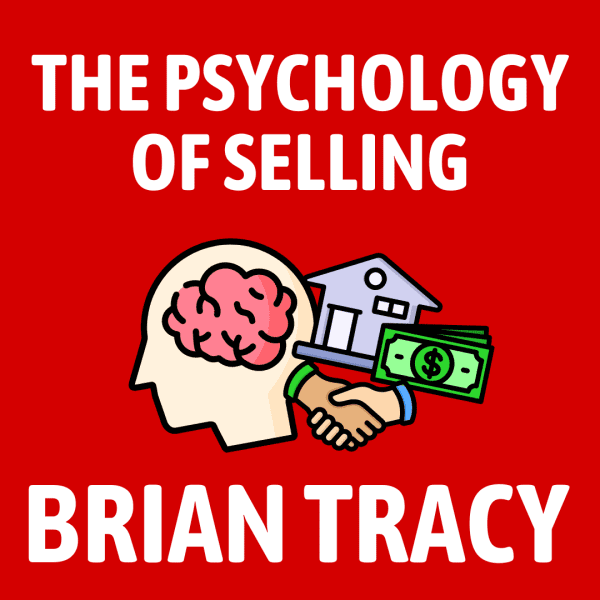
What Brian Tracy Taught Us About The Psychology of Selling
Brian Tracy’s book, The Psychology of Selling, has become a cornerstone in the world of sales. It combines powerful mental strategies with practical techniques, making it essential for anyone looking to excel in sales. This psychology of selling summary will explore the key lessons Tracy teaches about understanding customers, handling objections, and closing deals successfully.
What Brian Tracy Taught Us About The Psychology of Selling
1. Current state of the client’s business
One of the foundational principles in the psychology of selling is the power of mindset. Tracy emphasizes that success begins with a positive mental attitude. Sales professionals must believe in themselves and their ability to succeed. This mindset helps them persist through rejection, stay motivated, and approach each opportunity with confidence.
Key takeaway: A positive attitude attracts success, and customers are more likely to trust a salesperson who exudes confidence.
2. Setting Clear, Measurable Goals
A major concept in Tracy’s teachings is that top salespeople are goal-oriented. They set clear, measurable goals that help guide their efforts and keep them focused. Tracy introduces the idea that setting daily, weekly, and monthly targets allows sales professionals to track progress and continuously improve.
Key takeaway: Clear goals create a roadmap for success, helping salespeople stay focused on what truly matters.
3. Understanding the Buyer’s Emotions
Tracy stresses that buyers make decisions emotionally and then justify them with logic. A crucial part of the psychology of selling is understanding that people are driven by their emotions. Successful salespeople focus on appealing to a buyer’s emotional needs before backing it up with logical reasoning.
Key takeaway: People buy based on emotions, so salespeople should tap into their customers’ desires, fears, and aspirations to make the sale.
4. Always Be Prospecting
One of the most practical lessons in the psychology of selling is the importance of consistent prospecting. Tracy’s 80/20 rule states that 80% of sales come from 20% of your prospects. By continuously looking for new leads, salespeople can ensure that their pipeline is full, leading to more opportunities for success.
Key takeaway: Never stop prospecting. Filling the pipeline with new prospects is essential for sustained success.
5. Building Trust and Rapport
A key element in the psychology of selling is building relationships based on trust. Tracy explains that customers prefer to buy from people they like and trust. Establishing rapport early in the conversation, actively listening, and understanding their needs can go a long way in securing a sale.
Key takeaway: Building trust is fundamental in sales. The stronger the rapport, the easier it is to close the deal.
6. Handling Objections Confidently
Objections are part of the sales process, and how salespeople handle them can significantly impact the outcome. Tracy teaches that objections often stem from fear or uncertainty, and addressing them calmly and confidently helps reassure the buyer. Anticipating and preparing for objections is one of the most critical sales techniques Tracy advocates.
Key takeaway: Expect objections, prepare for them, and handle them with confidence to move closer to closing the deal.
7. The Power of Persuasion
Persuasion plays a significant role in the psychology of selling. Tracy teaches salespeople to use techniques like social proof, scarcity, and guarantees to persuade customers to take action. Knowing how to influence customers ethically can be a game-changer in the sales process.
Key takeaway: Mastering persuasion techniques can significantly improve your sales outcomes.
8. Focus on Value, Not Just Features
Another critical lesson in the psychology of selling is to sell based on value rather than product features. Tracy explains that customers are less interested in technical details and more concerned with how a product or service will solve their problems or enhance their lives.
Key takeaway: Focus on how your product benefits the customer, not just its features. This makes the sale more relevant to their needs.
9. Effective Closing Techniques
Closing is a crucial part of the sales process, and Tracy provides a range of closing techniques in his book. Whether using the assumptive close or summarizing the benefits before asking for the sale, knowing when and how to close is key to sealing the deal.
Key takeaway: Learn different closing techniques and apply them confidently. Timing and approach are essential for successful sales closures.
10. Continuous Learning and Improvement
In the psychology of selling, learning never stops. Tracy emphasizes that the most successful salespeople are those who continuously invest in their personal and professional development. Whether through books, seminars, or coaching, the best salespeople are always looking to refine their skills and adapt to changing markets.
Key takeaway: Keep improving your skills and staying up to date with industry trends. Continuous learning is vital for long-term success.

Final Thought
Brian Tracy’s The Psychology of Selling provides valuable insights into what makes a successful salesperson. By understanding the buyer’s psychology, building trust, setting clear goals, and refining essential skills, salespeople can significantly improve their performance. This psychology of selling summary highlights Tracy’s core lessons: staying confident, being goal-driven, and always learning are the keys to becoming a top-performing salesperson.
These principles remind us that sales is more than just a transactional process—it’s about understanding human behaviour, connecting with people emotionally, and continuously striving for improvement.
